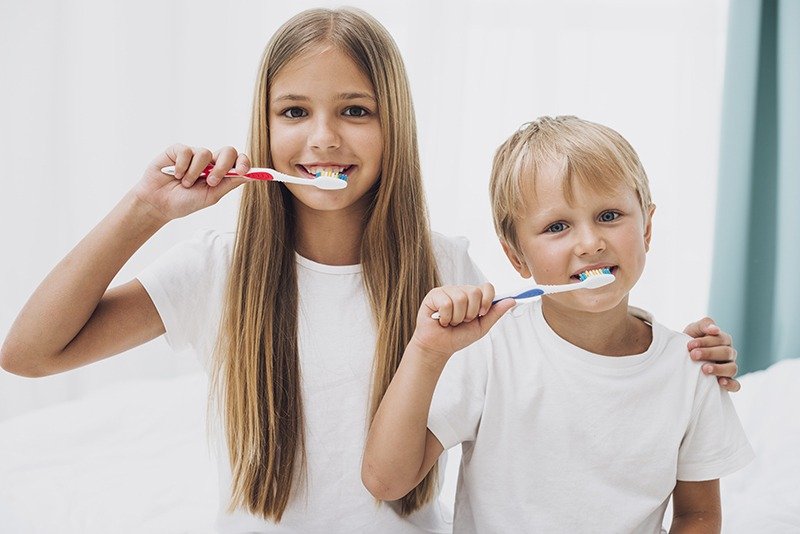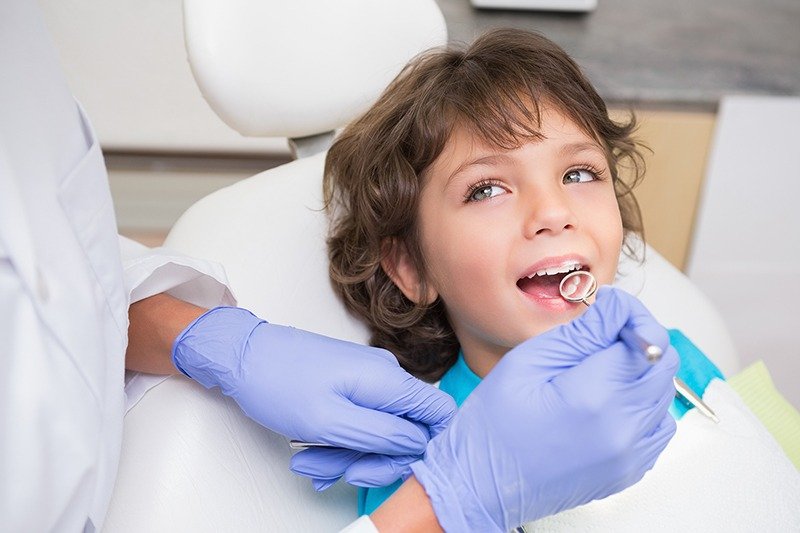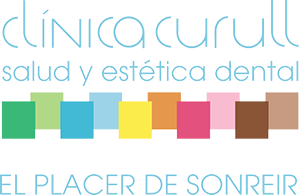PAEDIATRIC DENTAL SERVICE
At Clínica Curull we advise the first visit to the dentist before the first year of life, there is no minimum age to go for the first time since at any age we can benefit from a revision.
The first 1.000 days of life are essential for the future health of the child, it covers the gestation period up to two years, therefore, we also advise going to women as soon as they know they are pregnant.
During the first years of life and throughout childhood, it is a key moment to adopt the habits and skills that will determine the oral health of each individual. In addition, if from a young age they get used to visiting the dentist periodically, in the future they will do so naturally and without trauma.
In our clinic we emphasize prevention, education, creating healthy habits, and we treat oral problems that may appear conservatively and early. We teach children to know their mouth and to take care of it.


THE ORAL HEALTH OF THE YOUNGEST
Clínica Curull also offers you a specialized paediatric dentistry service, a specialized and fundamental service for our little ones to grow up healthy, with good teeth and a beautiful smile.
When do the first teeth appear?
- The first teeth normally appear by 6 months of age.
- The four front teeth (two on the top and two on the bottom) are the first to appear after 6 months of age.
- By the age of two and a half, all baby teeth and molars have erupted.
- There are 20 baby teeth: 10 on the upper jaw and another 10 on the lower jaw.
- Remember that the first permanent (permanent) molars come out behind the last baby tooth, around 6 years of age.
Frequent Questions
Is it important to take care of baby teeth?
Yes. Baby teeth are very important for the following reasons:
- They allow biting and chewing food.
- They act as a guide for the permanent teeth. Some baby teeth will not fall out until 11-12 years old.
- Save space for permanent teeth that will come out later.
- They help to pronounce some words.
- They are very important for the child’s self-esteem and for the smile.
Is it true that during pregnancy the baby takes calcium out of my teeth, leaving them brittle?
No. The calcium necessary for the formation of your baby’s teeth comes from a balanced diet, never from your teeth.
When do primary or baby teeth start to form?
From the sixth week of pregnancy and continue to develop until erupting in the mouth. That is why the feeding of the pregnant woman is so important; any health problems of the mother or baby during this period could affect the structure of the primary teeth. For example, premature and/or low-birth-weight babies are more likely to have enamel abnormalities than full-term babies.
When do permanent teeth start to form?
Permanent teeth begin to form shortly before delivery until around the third year of the child’s life. Therefore, some diseases or medications in early childhood can affect the formation of the enamel of permanent teeth.
Why is it important to keep baby teeth healthy if they are going to fall out?
- Because a tooth-free mouth in childhood is directly related to a healthy mouth in adulthood. If you want your child to be a cavity-free adult, take care of their baby teeth!
- If there is an infection in the baby teeth, the permanent teeth just below may be affected.
- Because baby teeth are used for your child to chew well, speak correctly, to maintain the place for permanent teeth. Also, a healthy smile helps in developing your self-esteem.
How are cavities in children treated?
Initially, it will be necessary to distinguish whether it is a primary or permanent dentition since, depending on the pathology that the tooth presents, the treatment may be different depending on the dentition in question.
When caries has caused a large hole in the tooth, metal crowns are usually applied, not very aesthetic but very practical. Its purpose is to act as a space maintainer while facilitating the child to chew well. Given this, we should not care that it is an unsightly treatment since it is very effective and does not mean that the permanent tooth that will erupt later will have problems. Most of the orthodontic treatments that are carried out today are generated by the loss of space in the primary dentition.
The tooth is only extracted when there is no other remedy, that is when the infection forces its extraction because the roots of the tooth have been destroyed and it is unfeasible. In these cases, a space maintainer must always be installed to avoid wasting the space necessary for the correct location of the permanent tooth.
When should I start cleaning my child's mouth?
Start now!
- Ideally, before the eruption of baby teeth; massage your gums with gauze or a clean cloth soaked in water.
- Once your baby teeth have erupted, cleaning with toothpaste is mandatory. Use a paste with 1000 parts per million (ppm) of fluoride in a “grain of rice” quantity, at least twice a day.
- From the eruption of your teeth (18-24 months), floss between their contact areas every night.
- Remember that children up to 7-8 years old are not skilled enough to perform effective oral hygiene alone, so it is the responsibility of parents or caregivers to supervise and review brushing.
What toothpaste should I use?
- In children between 6 months and 3 years, brush their teeth a minimum of 2 times a day with a toothpaste containing 1000 parts per million (ppm) of fluoride in a minimum quantity; this is “spot” or “grain of rice” size.
- For children between 3 and 5 years old, brush their teeth a minimum of twice a day with tubes of toothpaste of 1000 ppm fluoride in pea quantity.
- From the age of 5, brush your teeth a minimum of twice a day with the toothpaste of at least 1450ppm and a “pea” size; approximately the width of the brush head.
Is fluoride good?
- Topical fluoride is an excellent tool to protect the enamel from bacterial acid attack and reduce the risk of cavities in children.
- However, the paediatric dentist must assess your child’s individual caries risk to decide on the type and frequency of administration.
Our patients Say
Testimonials






